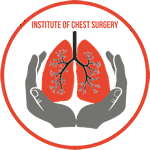As medical science advances, the understanding and treatment of various diseases continue to evolve. One such condition that warrants attention is thymoma, a rare tumor that originates in the thymus gland. While thymomas are relatively uncommon, they can have significant implications for affected individuals. In this article, we will delve into the intricacies of thymoma, exploring its definition, causes, risk factors, symptoms, diagnosis, and treatment options.
What is Thymoma?
Thymoma is a neoplasm, or tumor, that develops in the thymus gland. The thymus is a vital organ located in the chest, just behind the breastbone, and plays a crucial role in the maturation of certain white blood cells known as T lymphocytes or T cells. These T cells are essential components of the immune system, responsible for defending the body against infections and abnormal cells.
Thymomas are slow-growing tumors that usually remain confined within the thymus gland, and they are often associated with other autoimmune disorders, such as myasthenia gravis. Although thymomas can occur at any age, they are most commonly diagnosed in individuals between the ages of 40 and 60.
How Does Thymoma Develop?
The exact cause of thymoma remains unknown, and researchers continue to study the underlying mechanisms responsible for its development. However, some theories and risk factors have been identified.
- Genetics: There is evidence to suggest that certain genetic mutations or predispositions may play a role in the development of thymoma. Individuals with a family history of thymoma or other related disorders may have an increased risk of developing the condition.
- Autoimmune Disorders: Thymomas are often associated with autoimmune diseases, such as myasthenia gravis, where the body’s immune system mistakenly attacks its own tissues. The link between thymoma and autoimmune disorders indicates a complex interplay between the tumor and the immune system.
- Environmental Factors: Some studies have explored potential environmental factors, such as exposure to certain chemicals or radiation, as contributors to thymoma development. However, these associations are not yet definitive and require further investigation.
- Thymus Hyperplasia: Thymus hyperplasia refers to the abnormal enlargement of the thymus gland. It is believed that in some cases, thymoma may arise from pre-existing thymus hyperplasia, but the exact relationship is still not fully understood.
Symptoms of Thymoma:
Thymomas often present with various symptoms, although some cases may remain asymptomatic and are incidentally discovered during routine medical examinations or imaging tests. The symptoms of thymoma can vary depending on the tumor’s size and whether it affects nearby structures. Common signs and symptoms include:
- Myasthenia Gravis: Myasthenia gravis, an autoimmune disorder that causes muscle weakness and fatigue, is often associated with thymoma. Up to half of thymoma patients may develop myasthenia gravis either before or after thymoma diagnosis.
- Chest Pain: Thymomas can cause chest pain or discomfort due to their location in the anterior mediastinum, the area between the lungs.
- Coughing and Breathing Difficulties: Large thymomas may exert pressure on the nearby airways, leading to coughing and breathing difficulties.
- Superior Vena Cava Syndrome: In rare cases, thymomas can obstruct the superior vena cava, the large vein that carries deoxygenated blood from the upper body to the heart, causing swelling of the face, neck, and upper chest.
- Fatigue and Weakness: Some patients may experience general fatigue and weakness, often attributed to the tumor’s effect on the immune system.
Diagnosis of Thymoma:
Diagnosing thymoma requires a comprehensive evaluation, including medical history assessment, physical examination, and various diagnostic tests. Some of the common methods used for thymoma diagnosis include:
- Imaging Studies: Chest X-rays, CT scans, and MRI scans can provide detailed images of the thymus gland and surrounding structures, aiding in identifying the presence of a tumor.
- Biopsy: A tissue sample from the thymus is obtained through a biopsy procedure, either by needle aspiration or during surgery. The sample is then examined under a microscope to confirm the presence of thymoma and its specific characteristics.
- Blood Tests: Blood tests may be conducted to evaluate the levels of certain antibodies, including those associated with myasthenia gravis.
Treatment Options for Thymoma:
The treatment approach for thymoma depends on several factors, including the tumor’s stage, its size, and the patient’s overall health. Generally, the treatment options include:
- Surgery: Surgical removal of the thymus gland and the tumor, known as thymectomy, is the primary treatment for thymoma. If the tumor is localized and has not spread to other parts of the body, surgery offers the best chance for complete removal.
- Radiation Therapy: In cases where complete surgical removal is not possible, or if there is a risk of tumor recurrence, radiation therapy may be used to target and shrink the tumor.
- Chemotherapy: Chemotherapy may be recommended, either alone or in combination with radiation therapy, for advanced or aggressive thymomas that have spread to distant organs.
- Immunotherapy: Research into immunotherapy for thymoma is ongoing, and some patients may participate in clinical trials exploring new treatment options that harness the body’s immune system to target the tumor.
Conclusion
Thymoma is a rare tumor that develops in the thymus gland and is often associated with autoimmune disorders, such as myasthenia gravis. While the exact cause of thymoma remains unknown, ongoing research is shedding light on potential risk factors and genetic influences. Early diagnosis and appropriate treatment are essential in managing thymoma and its associated symptoms effectively.
If you or someone you know experiences symptoms or has concerns about thymoma, seeking prompt medical attention and consultation with qualified healthcare professionals, such as Dr. Mohan Venkatesh Pulle, is crucial for timely diagnosis and personalized treatment.
As research progresses, new advancements may offer more targeted and effective treatment options for thymoma, improving outcomes and enhancing the quality of life for those affected by this rare condition.







